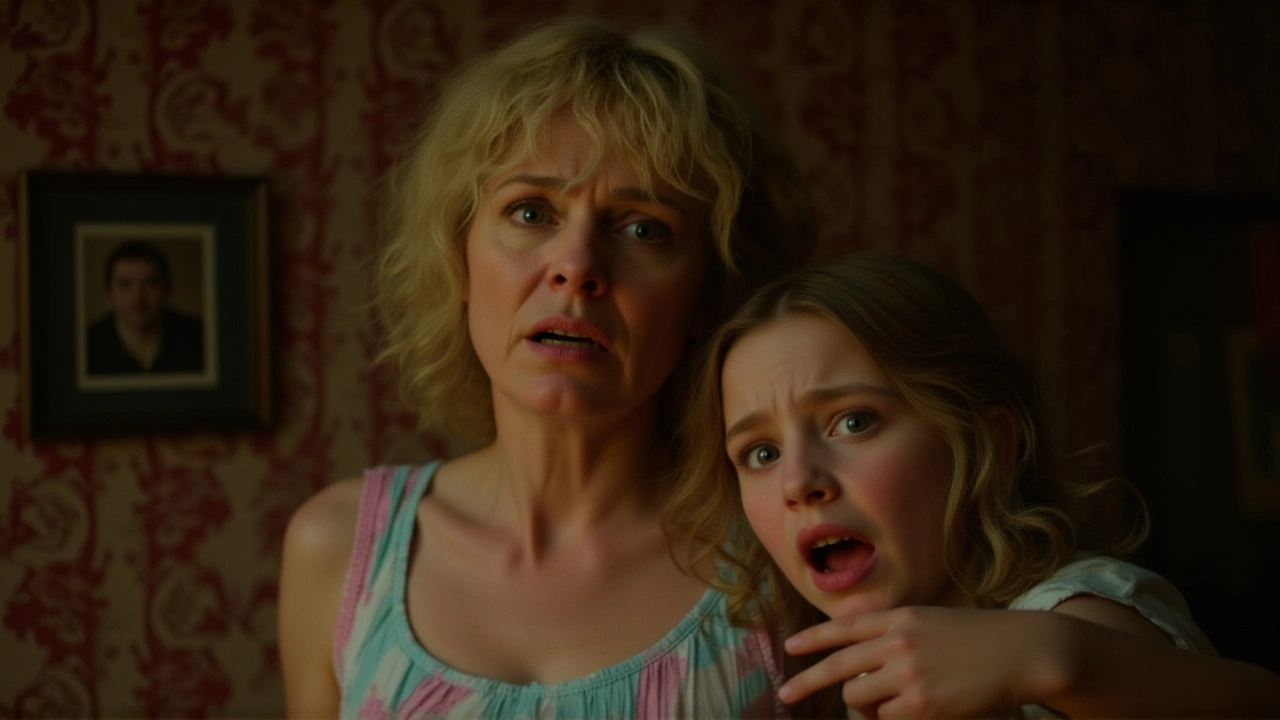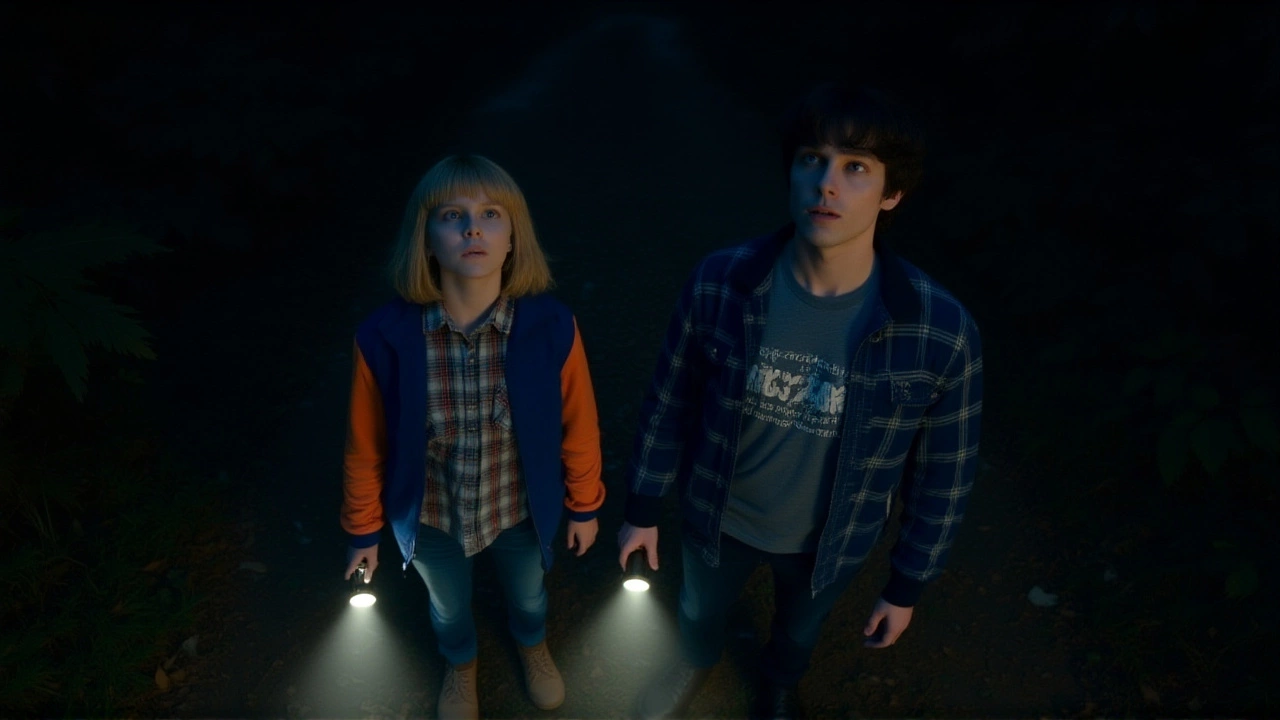The final chapter of Stranger Things began with a whisper — not a bang. On November 26, 2025, the first four episodes of Season 5 dropped on Netflix, triggering not just a global binge-watch but a flood of critical reviews that landed the show at its lowest Rotten Tomatoes score ever: 85%. Certified Fresh, yes — but for a series that once soared at 97%, this feels like a quiet farewell, not a triumphant finale. The audience score, meanwhile, sits at a robust 90%, suggesting fans still feel the magic, even if critics are starting to notice the creaks in the engine.
A Series at a Crossroads
When Stranger Things premiered on July 15, 2016, it wasn’t just a show — it was a cultural reset. The first season earned a staggering 97% on Rotten Tomatoes, a perfect storm of nostalgia, heart, and supernatural dread. Season 2 climbed to 94%. Seasons 3 and 4 held steady at 89%. But now, with Season 5, the numbers tell a different story: the show is aging, and so are its characters. The 85% score isn’t a failure — it’s a milestone. It’s the moment a beloved franchise stops surprising us and starts asking us to say goodbye.
Critics Split on the Final Stretch
The Rotten Tomatoes consensus calls Season 5 "genuinely captivating genre fare," but the individual reviews tell a more layered tale. Eric Deggans of NPR praised the pacing, noting how the Duffers keep the story moving even as it loops back to familiar beats. "Many may not notice how much these new dangers feel like old storylines," he wrote — a line that cuts deep. Meanwhile, Alison Herman of Variety argued the season feels "stretched thin," expanding its scale without deepening its characters. That’s the heart of the critique: the show’s ambition has outgrown its emotional core.
But there’s warmth, too. Samantha Nelson at Polygon found joy in the reunion of Hawkins’ core group after Season 4’s scattered arcs. "The story is better because of this change," she wrote. And Liz Shannon Miller at Consequence highlighted Robin and Will’s heart-to-heart — a quiet, human moment that landed harder than any Demogorgon. "It’s genuine and human and real," she said. Those scenes, not the explosions, might be what fans remember most.

Why the Drop? It’s Not Just Fatigue
Three years passed between Seasons 4 and 5. That’s longer than the gap between Seasons 1 and 2. The cast grew up. The world changed. And the show’s tone shifted from "kids vs. monsters" to "teens vs. fate." The nostalgia that once fueled the series now risks becoming its crutch. Rebecca Nicholson of the Financial Times saw it differently: "A three-year break and the prospect of a clear ending has allowed the show to regain its focus." She’s right. Season 5 doesn’t feel rushed. It feels deliberate. But deliberate doesn’t always mean exciting.
Even the critics who praised it acknowledged the weight of the moment. Jack Seale of the Guardian wrote: "Stranger Things definitely needs to switch off its boombox, hang up its catapults and admit it's too old for these capers, but it's worth indulging it one last time." That’s the tone of the whole season: affectionate resignation. The show knows it’s running on fumes — and so do we.
What Comes Next? The Final Episodes
These first four episodes — labeled "Volume 1" by Netflix — are just the setup. Episodes 5 through 7 arrive on December 25, 2025. The finale drops on December 31, 2025. That’s not just a release schedule; it’s a countdown. And Rotten Tomatoes scores don’t stabilize until the full season is watched. The 85% could rise. It could fall. But the real question isn’t the number — it’s whether the ending will make us forget the dip.
Screen Rant’s Alex Welch put it simply: "Will likely fluctuate as more are added." And he’s right. Critics who saw only the first half didn’t get the payoff. The Duffers — Matt Duffer and Ross Duffer — along with producers Shawn Levy and Dan Cohen, have always saved their best for last. The finale could rewrite the narrative entirely.

The Legacy of Hawkins
When Hawkins, Indiana first appeared on screen, it felt like a place we’d always known. Now, after seven seasons, it feels like a memory. The show’s genius was never just in its monsters — it was in how it made us care about kids who talked like they’d watched too many Spielberg movies. That charm still flickers. The humor, the warmth, the quiet moments between Mike and Eleven, Dustin and Suzie — they’re still there.
But the world has moved on. So has the audience. And that’s why this season matters less for its score and more for its honesty. It doesn’t pretend to be the show it was in 2016. It doesn’t try to recapture lightning. It tries to close the door gently.
Frequently Asked Questions
Why is Stranger Things Season 5’s Rotten Tomatoes score lower than previous seasons?
Season 5’s 85% score reflects growing critical fatigue with familiar tropes and a perceived lack of character development amid expanded stakes. While earlier seasons benefited from novelty — Season 1’s 97% was fueled by fresh storytelling — Season 5’s return after a three-year break made its nostalgic callbacks feel repetitive to some reviewers, despite strong audience reception at 90%.
Will the Rotten Tomatoes score change after the final episodes air?
Absolutely. The current 85% is based only on the first four episodes. Critics haven’t yet reviewed the full season, and many have indicated the finale could significantly alter their assessments. Past seasons saw score shifts of 5–10 points after full releases, so Season 5’s final score could rise — or fall — depending on how the conclusion lands emotionally.
How does Season 5 compare to other final seasons of popular Netflix shows?
Unlike shows like Orange Is the New Black (final season: 76%) or House of Cards (final season: 71%), which saw sharp declines, Stranger Things still outperforms most finales with its 85% and 90% audience score. It’s more comparable to Game of Thrones’ final season (76%), but with far stronger fan loyalty — suggesting its legacy may endure beyond the ratings.
Which characters are getting the most meaningful arcs in Season 5?
Robin and Will receive the most emotionally resonant moments, with Robin’s heartfelt speech about her identity marking a turning point for both characters. Eleven and Mike’s relationship also deepens, while Lucas and Max confront unresolved trauma from Season 4. These arcs, according to critics like Liz Shannon Miller, ground the season’s spectacle in genuine humanity.
Is the show still worth watching despite the lower critic score?
Yes — especially if you’ve followed the series since 2016. Critics note that while Season 5 isn’t as groundbreaking, it delivers the show’s signature blend of humor, heart, and horror with precision. The audience score of 90% suggests fans still connect deeply. This isn’t a comeback — it’s a farewell tour, and the final episodes may make it unforgettable.
What’s the significance of the December 31, 2025 finale date?
The December 31 release isn’t just a date — it’s symbolic. Dropping the finale on New Year’s Eve turns the end of Stranger Things into a cultural moment, mirroring how fans grew up alongside the characters. It’s a deliberate choice by Netflix and the Duffers to frame the ending as a generational closing, not just a TV season finale.

Written by Rupert Greenlow
View all posts by: Rupert Greenlow